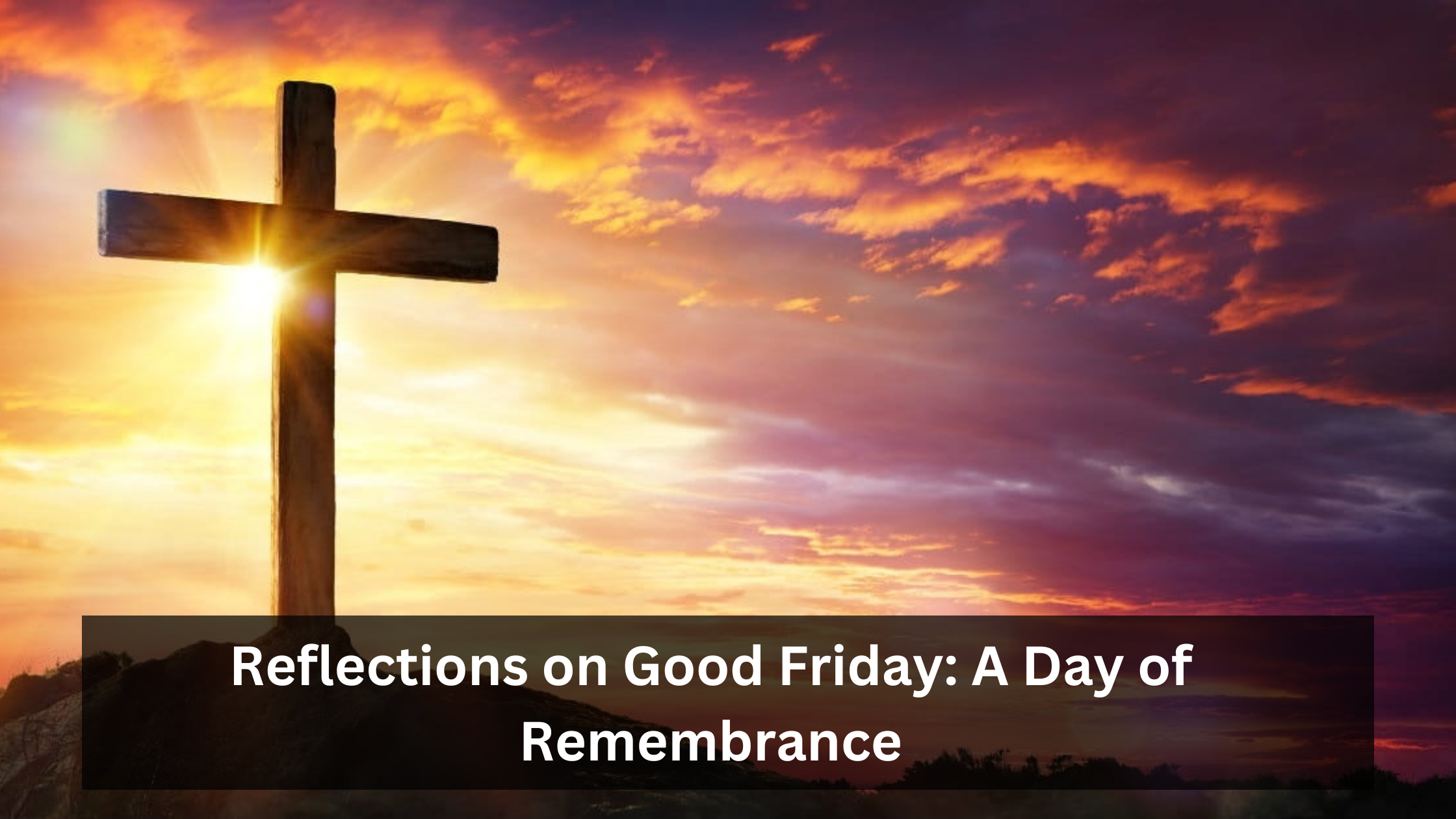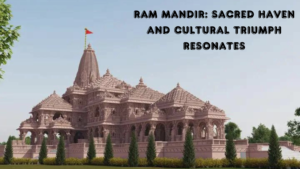Reflections on Good Friday: A Day of Remembrance
Two days prior to Easter Sunday, during Holy Week, there is an observance of Good Friday. It falls on March 29 of this year. Known by several names such as Great Friday, Holy Friday, Great and Holy Friday, or Black Friday, it honours the day when the Romans crucified Jesus and killed him at Calvary.
What gives Good Friday its name?
How could Jesus’ death be good? There are several reasons to commemorate the crucifixion as the source of the word “good.” First of all, “good Friday” might also be referred to as “holy Friday” or “God’s Friday” because the Old English term “good” originally meant “holy.” An expert says that if we consider the other names for Good Friday, like “Sacred Friday” (in Roman languages) or “Passion Friday” (in Russian), then this argument makes a lot of sense.
Second, because of the holiday’s connection to Easter Sunday, which commemorates the resurrection of Christ, the day is known as Good Friday. The day of Jesus’ death was, in a way, “good,” as he could not have been raised from the dead without dying.
According to the Huffington Post, “That terrible Friday has been called Good Friday because it led to the Resurrection of Jesus and his victory over death and sin and the celebration of Easter, the very pinnacle of Christian celebrations.”
Fourth, Luke 23:34 states that even as he was being tormented, Jesus begged God to pardon his executors, saying, “Father, forgive them, for they know not what they do.” Thus, Good Friday represents the removal of the final barrier separating God and humanity. Furthermore, if we refuse to forgive, we refuse to let go, and clinging to our grudges pushes us farther away from God. Therefore, if you want God to forgive your failings, you must learn to forgive those who wrong or damage you.
Fourth, according to Luke 23:34, Jesus pleaded with God to forgive his executioners while he was still in agony, saying, “Father, forgive them, for they know not what they do.” Thus, the ultimate partition between God and humanity is symbolized by Good Friday. Furthermore, holding onto our grudges drives us further away from God because when we refuse to forgive, we also refuse to let go. Thus, you have to learn to forgive people who hurt or wrong you if you want God to pardon your transgressions.
Furthermore, individuals do not wish each other a “Happy Good Friday” because for Christians it is a day of reflection and grief rather than joy. Alternatively, it is specifically “observed” rather than “celebrated” everywhere.
A lot of people use Good Friday as a day of reflection, fasting and church attendance included. A lot of churches perform scenes from Jesus Christ’s grueling journey up Mount Calvary, when he was compelled to wear a crown of thorns and suffer while ascending to the top of the mountain. While some churches confine their services to the three hours that Christ was crucified and hung on the cross, others host daylong events.
Good Friday’s significance: For Christians, Good Friday represents Jesus Christ’s final atonement for the sins of humanity. It is a day of mourning, fasting, and penance, accompanied by prayers for deliverance from suffering. Jesus’ death and resurrection on Easter Sunday signify the cessation of all sins and the prospect of a fresh start.
Traditions: Prayers, fasting, and almsgiving are observed on Good Friday. Religious services are attended by large crowds, and churches observe particular rites to remember Jesus’ suffering. Muffled bells are a symbol of mourning.
Observance: Good Friday is reverently observed but not celebrated. Around the world, churches host special services that feature Bible readings, reflective hymns, and requests for forgiveness. Good Friday is a public holiday in some places, giving people the opportunity to visit churches and consider the meaning of the day.
Traditions and Customs: Reading the Bible, abstaining from meat, fasting, and church attendance are examples of customs. While charity and deeds of compassion are urged to assist those in need, certain localities commemorate the Passion of Christ through processions and reenactments.
Read More: Netflix show reunites Kapil Sharma and Sunil Grover












